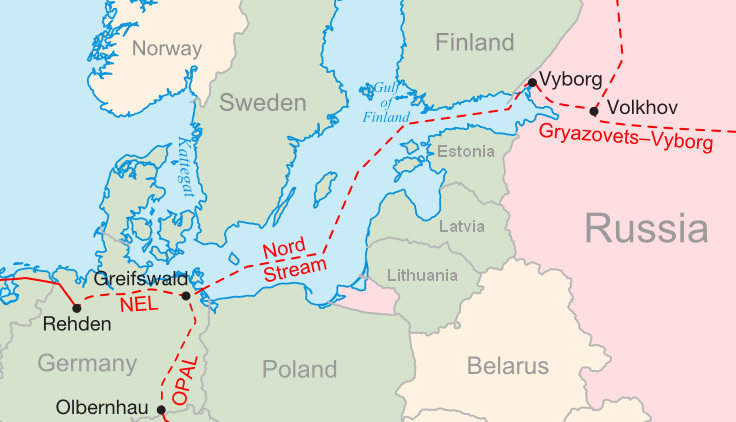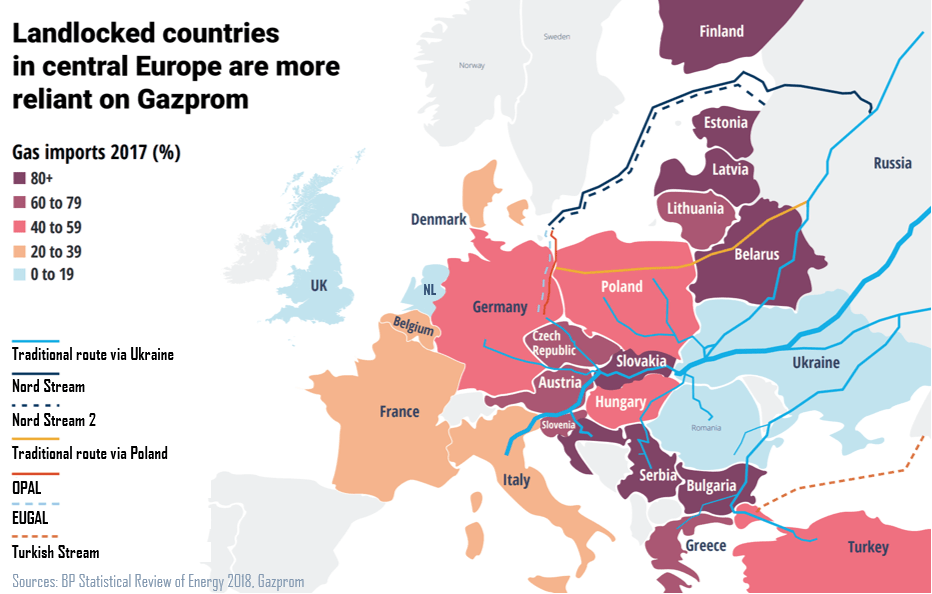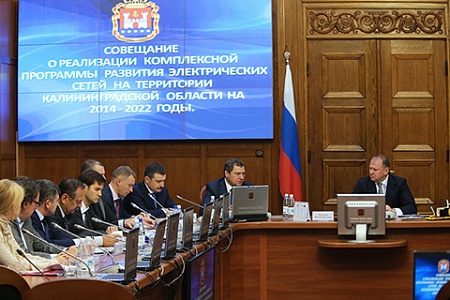However, not all is lost, and in the geopolitical struggle against the Nord Stream-2 pipeline, Ukraine has found a partner -- Poland, where several legal victories can hold the key to success in halting Russia’s gas expansion.
Poland and Ukraine vow to oppose Nord Stream 2
After the text of the deal was published on 21 July, Polish Foreign Minister Zbigniew Rau joined his Ukrainian counterpart Dmytro Kuleba in denouncing the deal, releasing a joint statement where Russia was called “the only beneficiary” of the security and political crisis in Europe initiated by the decision to build Nord Stream 2 mere months after Russia’s invasion of Ukraine and annexation of Crimea.
Together with @RauZbigniew we call on the US & Germany to adequately address the security crisis in our region, that Russia is the only beneficiary to. We will work with allies & partners to oppose NS2 until solutions are developed to address the crisis: https://t.co/YH0OvyPeIG pic.twitter.com/JR3yrcLzxZ
— Dmytro Kuleba (@DmytroKuleba) July 21, 2021
“Currently, this crisis is significantly deepened by the resignation from attempts to stop the launch of the NS2 gas pipeline. This decision has created a political, military, and energy threat for Ukraine and Central Europe while increasing Russia's potential to destabilize the security situation in Europe, perpetuating divisions among NATO and European Union member states,” the statement notes, referring to the USA abandoning attempts to stop Nord Stream 2 through enacting sanctions through the agreement with Germany, the primary beneficiary of the pipeline.
“Each credible attempt to cover the security deficit must take into account its negative consequences in three areas: political, military and energy. Such an attempt shall also have a democratic dimension, that assumes talks with governments of the countries most affected by the negative effects of NS2 at the stage of reaching an agreement,” the statement says, taking aim at claims of the USA State Department that consultations were held with Ukraine and Poland during the drafting of the deal. In fact, no such consultations were held, the spokesperson of the Ukrainian MFA informed. That Ukraine was simply informed about a concluded deal drastically affecting its security and giving leverage to Russia in the ongoing war dashes a long-standing principle of Ukrainian foreign policy -- “nothing about Ukraine without Ukraine.”
“Unfortunately, the hitherto proposals to cover the resulting security deficit cannot be considered sufficient to effectively limit the threats created by NS2...Ukraine and Poland will work together with their allies and partners to oppose NS2 until solutions are developed to address the security crisis created by NS2, to provide support to countries aspiring to membership in Western democratic institutions, and to reduce threats to peace and energy security,” the statement sums up.
These “insufficient proposals” of security assurances of the US-German deal include promises to attempt to prolong a Ukraine-Russia agreement on gas transit after its expiration in 2024 and appointing an ad hoc representative to this end.
Mykhailo Gonchar, President at Centre for Global Studies “Strategy XXI,” explained why these assurances can be deemed as ineffective in an interview with Euromaidan Press: they may (and most likely will) be nominal.
Apart from promises to assist in prolonging a Ukraine-Russia agreement on gas transit after 2024 (which does not give much hope to Kyiv), the assurances proposed by Biden and Merkel included a possible sanction regime against Russia, should it resort to using gas as a weapon. Mr. Gonchar commented that the chances of such a mechanism indeed being enacted are close to zero:
“Basically, this means Germany would need to stop importing gas from Russia. But this will never happen.
When Moscow resorted to aggression against Ukraine in 2014 [and Europe started imposing sanctions against Russia in this regard], German European Commissioner Günther Oettinger insisted that energy resources were excluded from the sanction regime with regard to Russia. So any chatter about German sanctions against Russia does not mean they will actually be imposed.
Only nominal sanctions may be enacted, like cutting Russian gas delivery by one billion cubic meters. This way sanctions will exist on paper, but they will be ridiculous, such an illusion,” acknowledges Mr. Gonchar.
Adding to the unlikelihood of Germany actually sanctioning Russia is that when almost a year ago, as Russian opposition leader Alexei Navalny’s poisoning case started, there were talks about responding to Russia’s brutal actions with sanctions, yet, no such measures were imposed. When Navalny was arrested, debates about a moratorium on Nord Stream 2 sparked. Yet no actions followed.
And today, when Gazprom is draining the European gas market by minimizing gas delivery to the EU, leading to skyrocketing prices, European structures, and especially Germany, remain inert and reticent. Soon, the completion of the Nord Stream 2 will give Putin even more leverage to manipulate directions, volumes, and prices of its gas export to the EU.
Victories of Poland’s battle against Russia’s gas stranglehold on the EU instructive for Ukraine
While the assurances of the recent US-Germany deal are generic and potentially weak, Mr. Gonchar believes the situation is not hopeless, as neither Biden nor Merkel monopolizes foreign policy in their states. The common Washington-Berlin stance was pushed through by the Russian-German lobby and only within narrow circles in the US and Germany. This means Ukraine’s struggle against the Nord Stream 2 should continue but in another dimension and with another partner -- Poland.
In this struggle, a crucial instrument can make the guarantees real and more likely to be implemented by the parties. It is based on the recent victory of Poland against Germany regarding the OPAL pipeline, a terrestrial extension of the Nord Stream 1 in the European Court of Justice.

The story started in 2016, when restrictions on using the pipeline were lifted thanks to the German lobby in the EU Commission. This ran contrary to the EU Gas Directive stipulating no more than 50% of the gas transportation system's capacity can be used by one supplier, and the rest must be reserved for third states to ensure the principle of diversification. Although it is clear that no other provider except Gazprom will appear in this pipeline, the legal rule must be observed.
“Poland’s five years of perseverance were crowned with success: the European Court held that the rule of the European law must be obeyed. But, significantly, this is not a narrow sectoral verdict of the Court, it is a decision based on the idea of the principle of energy solidarity enshrined in Article 194(1) of the fundamental Treaty on the Functioning of the European Union.
The essence of this is simple: one of the EU states, in our case Germany, in the realization of its projects with the third states shall not prejudice interests of other EU states, in this case, Poland. They shall act in accordance with the principle of energy solidarity of the EU states.
Germany criticized the decision. Yet, it is final and conclusive. As Berlin claimed, the principle of energy solidarity is political and declarative. But the Court ruled that this concept is specific and must be applied in practice as solidarity appears to be one of the fundamental principles of the EU,” Mr. Gonchar explained.

Poland and Ukraine could build on this Polish precedent with Nord Stream 1 to fight against the Nord Stream 2 pipeline and its EUGAL branch in the Baltic Sea, and the Balkan Stream, the second branch of TurkStream, in the Black Sea, Mr Gonchar argues.
Despite Ukraine not being an EU member, it can use mechanisms available through the EU Association Agreement and the Memorandum of Understanding on cooperation in the field of energy between the EU and Ukraine, both of which feature the principle of energy solidarity, Mr. Gonchar says.
The issue of the real guarantees should be solved in the following way: Russia being a third country for the EU and having no association agreement, should have received a clear-cut European regulation that it may exploit all its three pipelines constructed -- two Nord Streams in the Baltics and one in the Black Sea -- but at 50% capacity. Then, accordingly, Ukraine will preserve its status quo and retain its transit -- not the desirable volume but at least 40 billion cubic metres, that remain automatically.
"In case Russia acts in conflict with this approach, a compensation mechanism will be launched against the abusers, such as punitive damages that will be granted to the Ukrainian side,” Gonchar states.
Thus, Kyiv and Warsaw can make use of the situation created following the European Court’s ruling in the Poland-Germany case. This approach still has a chance to right the ship around Nord Stream 2 no matter whether it will be constructed and commissioned or not.
According to Mr. Gonchar, preserving Russia's gas transit through Ukraine to Europe will not automatically deter Putin’s aggression. But the completion of the construction of Nord Stream 2 and the second branch of the TurkStream will only enhance Russia’s preparedness to attack Ukraine.
The OPAL case is not the only winning move Poland took against Russian pipelines. Back in 2020, the Polish Competition Authority (UOKiK) imposed a fine of €6.5 bn on Gazprom and €50.8 mn on five global energy companies for concluding agreements on financing the construction of Nord Stream 2 without the necessary consent of the competition.
The violation goes back six years, when Nord Stream 2 AG, a company created to plan, construct and exploit the Nord Stream 2 pipeline, clinched deals with ENGIE, OMV AG, Shell, Uniper, and Wintershall Dea to finance the project. Poland’s state competition authority deemed these agreements as concentration, or merger through arrangements on financing the project and distribution of competencies among the participants.
The Anti-Monopoly Committee of Ukraine could have resorted to the same procedure, as, like Poland, it never gave consent for Nord Stream 2's construction. If that had happened, any discourse on Nord Stream 2 would have started with references to Russia’s fine.
Like Poland’s, Ukrainian competition legislation may also regard the creation of a joint enterprise as concentration, or concerted actions. And any concentration must receive preliminary consent in the Anti-Monopoly Committee after reaching a certain monetary threshold.
In the case of the Nord Stream 2, it was greatly exceeded. Hence, before an enterprise is given a green light from a respective state institution, its activities are considered illegal. If such a company conducts its work without a license, it may face a fine of 5% of its annual revenue.
The Gas Transmission System Operator of Ukraine LLC, is a participant in the European market of transportation of natural gas through the Ukrainian gas transportation system. The activities of Gazprom and its partners may push the Ukrainian company off the market. If Gazprom stops transporting gas through Ukraine’s territory after Nord Stream 2 is constructed, the competition in the European market may be restricted and the Ukrainian company may be removed. Therefore, the activities of the companies involved in the Nord Stream 2 are directed at eliminating competition and would be prohibited until a permit from respective authorities.
The Polish Competition Authority (UOKiK) decided that since Gazprom and its partners did not receive permission, they should pay fines and sever their treaties.
Tomasz Chróstny, the president of the Office of Competition and Consumer Protection (UOKiK), commented on the decision:
"The activities of the six companies had a negative impact on the competition on the market of natural gas of Poland, which plays a great role for the whole economy, in particular, households. The launch of the Nord Stream 2 will endanger the perpetuity of the delivery of gas to Poland; also, it will probably raise prices on raw resources, which will encumber Polish consumers. The implementation of this investment will enhance the economic dependency of not only Poland but also other European countries. From the viewpoint of energy security, this enterprise will divide Europe into two parts with the border in the Oder. It is surprising that Western corporations taking part in the project fail to understand this aspect. They trample upon not only the market competition but also European energy security.”
Related:
- How Ukraine can still defeat Nord Stream 2
- Seven reasons why the USA and EU lost to the Nord Stream 2 lobbyists
- “A second Budapest memorandum”: experts on the US-Germany Nord Stream 2 deal
- What the US-German deal on Nord Stream 2 promises Ukraine
- US-Germany Nord Stream 2 agreement — a victory for Russia
- Strategic corruption: the new hybrid weapon against the West
- After Nord Stream-2: how Ukraine can protect its gas transit
- Mitigating the Nord Stream 2 impact on Ukraine
- Biden may lose ability to play around with Nord Stream sanctions: interview with Lana Zerkal
- Time to stop Nord Stream 2 now: open letter by Ukrainian politicians, leaders





